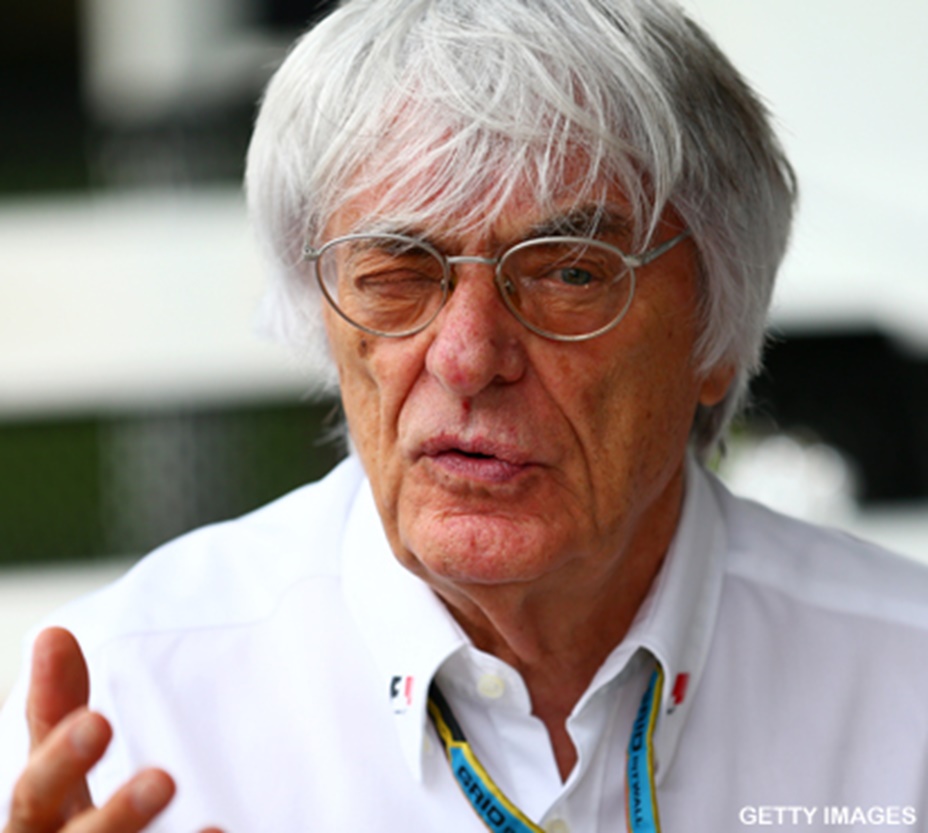Scathingly sanguine "about the financial woes of lesser teams, casually chauvinistic and claiming to open doors for governments," F1 CEO Bernie Ecclestone "pulled no punches" in an interview with CAMPAIGN ASIA-PACIFIC Brand Dir Atifa Silk. Ecclestone "is under assault on several fronts." The futures of two teams -- Caterham and Marussia -- "hang in the balance." Pressure "is mounting for a new strategy to tackle Formula One issues, from the spiralling costs and declining television audiences to falling sponsorships figures." Ecclestone, who has fought bribery allegations in London and Munich, "has lived through many of the sport’s ups and downs."
Atifa Silk: What does the Formula One brand stand for?
Bernie Ecclestone: That’s a difficult question to answer. I suppose it is a major sport and most sports are in the entertainment business. Sometimes we tend to lose track of the entertainment and get caught up a bit more on the technical aspect of Formula One, which I’m not happy about. We are very technical and we need to stay that way but I’d rather see a bit more effort on the entertainment.
Silk: How can you bring more of the entertainment factor into Formula One?
Ecclestone: Entertainment is what people want to see.
Silk: What makes Formula One special?
Ecclestone: People like winners and losers. At Formula One, you have one winner and a lot of losers. People can support a particular driver, or a team.
Silk: Is Formula One in crisis?
Ecclestone: No. Good or bad, I’ve been around Formula One a long time and I’ve seen it all. I used to own a race team and for 18 years I ran a successful team and won world championships. There are always people that haven’t managed to run their business commercially successfully. They spend more than they have for income. We’ve seen this happen before and this is what’s happened again.
Silk: Are you concerned about struggling teams and the impact this will have on F1?
Ecclestone: Not at all. Nobody will miss the two teams because they’re not front-running teams; they’ve only got a name that people would know because of the problem they’re in. If you want to get recognised you’ve got to do something.
Silk: What is the trend in sponsorship that you’ve seen in recent years?
Ecclestone: There are so many places that brands can put their money in for sponsorship. Why is that? Because there are lots more sports on television these days. They may not be on the premier channels and not with big audiences, but they’re there. Some brands, I believe, take the wrong approach. They spend little amounts in a lot of different places that don’t deliver much [return on investment].
Silk: How much does F1 need sponsors, versus broadcasting rights or race fees?
Ecclestone: It’s not life and death for us. The income comes from promoters that run races, and have to be there to provide a service for the show or the television. Sponsors are there and, of course, if all the sponsors stopped it would hurt us financially but it wouldn’t cause as much damage as it would for a race team because we could cut our costs.
Silk: How can Formula One widen its reach (beyond television) to expand its audience base?
Ecclestone: I’m not interested in tweeting, Facebook and whatever this nonsense is. I tried to find out but in any case I’m too old-fashioned. I couldn’t see any value in it.
Silk: Do you believe there is no value in reaching this young audience?
Ecclestone: Young kids will see the Rolex brand, but are they going to go and buy one? They can’t afford it. Or our other sponsor, UBS -- these kids don’t care about banking. They haven’t got enough money to put in the bloody banks anyway. That’s what I think. I don’t know why people want to get to the so-called "young generation." Why do they want to do that? Is it to sell them something? (CAMPAIGN ASIA-PACIFIC, 11/14).




